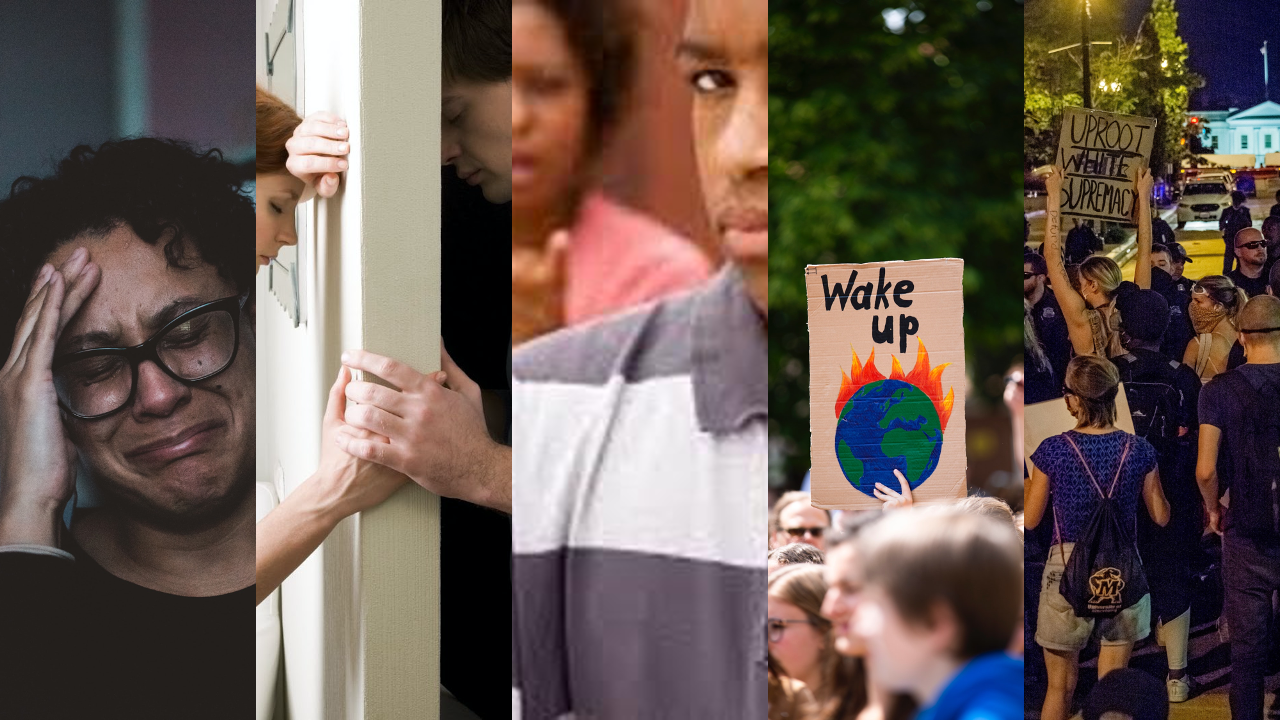
How do you start a conversation that will heal ourselves, families, communities and nation?
Nov 14, 2020How in the world are we ever going to work through the polarization and extreme divisiveness that is ripping our nation, communities and families apart? Radically different perspectives about the elections, the pandemic, racial injustice, immigration, the environment, the economy, and health care continue to fuel a type of social civil war rife with animosity, hatred, and violence. The echo chambers of social media only amplify what we think we know to be true.
How are we ever going to reconcile our differences and unite as a country? Is there a way to understand what is really going on without it deteriorating into a fight?
Yes. One conversation at a time.
How do we have that conversation? How do we have that conversation in our families with the relative who is wearing the t-shirt for the other side?
How do we have that conversation in our schools with the parent who doesn't want his kid wearing a mask?
How do we have that conversation in our workplaces with the colleague who thinks the pandemic is a hoax, or thinks that it’s not a hoax?
These conflicts are happening everywhere we turn. They result in a collision of competing interests and opinions in families where parents are opposed to each other; in schools, where faculty contradict each other’s different beliefs; in our workplaces where our co-workers are trying to convince us that their point of view is right.
What's the conversation process or technique that needs to happen to make sure that these conflicts don't escalate into serious harm, and the destruction of people and relationships?
If there is no consistent and constructive way to move through conflict, the conflict goes sideways and underground. The lack of resolution results in unreconciled hurt feelings and residual tension. People feel unsatisfied and unsafe. Negativity, animosity, passive-aggressiveness, sarcasm, and cynicism degrades day-to-day interaction. Trolling, fake-news and gossip become the medium where perceived injustices are voiced, blaming occurs, and polarization happens. People take sides or feel pressured to do so. Lack of resolution fosters unconstructive and even harmful ways of interacting in other areas as well (e.g. team meetings, decision-making, information-sharing, etc.).
How do we reconcile these competing interests, and vehemently held beliefs in these various social and personal contexts? What does that conversation look like and how do you conduct it?
When conflict happens and harmful communication occurs, individuals need help unpacking what happened, expressing how they were impacted, exploring why it happened, what needs are being neglected, and creating an agreement for both repairing any harm and preventing it from happening again. This is S.H.A.R.E – the Restorative Way structured conversation process in summary.
If you don't have a way to communicate through destructive conflict, if you don't have a structured conversation process to follow, three unintended consequences will happen.
First, nothing is going to be resolved. The resentment will continue to build regardless of who wins the election, or what you may think about people wearing/not wearing a mask. The fear and hatred will continue, and continue to tear us apart.
Second, a valuable opportunity will be lost to actually understand each other on a very human level. Underneath our divisive beliefs exist some very basic needs for respect and consideration for our shared humanity. If we don’t have a constructive way to reclaim this whilst we discuss our differences, we will remain hostage to our own point of view at the expense of those values and principles we might share. We’ll never find a common ground.
Third, we just won’t heal. We won’t heal on an individual level, family or community level, and certainly not on a social level as a country. We can actually use conflict to heal, but it takes a very special type of conversation.
When the S.H.A.R.E. process is established as “the way we do conflict”, individuals can relax into it and trust that the interaction to reconcile the incident (or pattern) will be non-retributive, based on mutual respect, empathy, and accountability.
The only wrong way to do conflict is to not address it with directness, integrity, honesty, and mutual respect.
I have two friends. They couldn’t possibly be further apart in their beliefs and perspectives. They sit on different “sides of the aisle.” They have different opinions on COVID-19; on wearing a mask; on immigration; on climate change; on voter fraud; on the future of this country.
My two friends are married to each other. They have 4 children ages 4-19. Though they have agreed to not discuss politics, there is a profound resentment between them that is threatening their marriage and their children’s wellbeing.
In my next post I’m going to tell you about how I worked with them to have the difficult conversation about what was tearing them apart.
If you would like to know more about addressing conflict situations using S.H.A.R.E. – Restorative Way’s structured conversation process, download the FREE excerpt of Restorative Way Playbook which details the S.H.A.R.E process.
Finally, I have a question for you. If you could drop in for a coffee with me, what two questions would you like to ask me?
Onwards!
Dr Will Bledsoe
PS. Im really serious - go ahead and tell me your question in the comments below. What do you need help with?
Lorem ipsum dolor sit amet, consectetur adipiscing elit. Cras sed sapien quam. Sed dapibus est id enim facilisis, at posuere turpis adipiscing. Quisque sit amet dui dui.
Stay connected with news and updates!
Join our mailing list to receive the latest news and updates from our team.
Don't worry, your information will not be shared.
We hate SPAM. We will never sell your information, for any reason.

